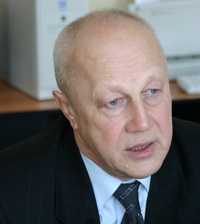
TATAR TREATY SUGGESTS DISSENT INSIDE KREMLIN ON REGIONAL POLICY
TATAR TREATY SUGGESTS DISSENT INSIDE KREMLIN ON REGIONAL POLICY
On Friday, February 9, the Russian State Duma ratified a power-sharing agreement between the federal authorities and the Republic of Tatarstan, a Muslim-dominated republic in the Volga region. The treaty gives Tatarstan a degree of economic and political autonomy that no other region enjoys (see EDM, May 25, 2006; November 21, 2006).
Ratification was quite unexpected. In recent weeks high-ranking Russian politicians, including Russian President Vladimir Putin himself, have made statements that implied that the Kremlin was going to bury the notion of power-sharing agreements (see EDM, February 1).
The debate about ratification inside the Kremlin-controlled parliament was the most heated in years. Finally, 306 lawmakers voted for the treaty while 110 voted against with one abstention. Predictably, all members of opposition parties represented in the parliament (Liberal Democrats, Communists, and Rodina) voted against the treaty. But surprisingly, so did many members of the pro-Kremlin United Russia party who usually follow a strict party line on important issues.
The Tatar authorities were not confident that the document would be ratified until the votes were actually tallied. On the day of the vote, Marat Galeev, a leader of the Tatar parliament, issued a special statement saying that the authorities of Tatarstan hoped that the State Duma would adopt the treaty because the document would help strengthen “territorial integrity” (Itar-Tass, February 9).
Many deputies disputed Galeev’s logic. “The document provokes a cessation and breakdown of Russia,” Gennady Zyuganov, leader of the Communist Party, told Ekho Moskvy radio. Gennady Gudkov, a member of the Duma’s Security Committee and a member of United Russia argued, “Tatarstan just cannot demand exclusive conditions for itself, for this could create a precedent that other subjects of the federation might be eager to use. If we reject claims of other regions to have similar treaties, it could lead to local conflicts” (Lenta.ru, February 9).
The power-sharing agreement with Tatarstan goes against the highly centralized vertical structure of power favored in Putin’s Russia. Yet the heated and open discussion around the treaty was most unusual for the modern Russian political elite. While previously all the Kremlin’s policy moves regarding the regions could be easily predicted and everybody in Russia knew in advance what decisions would be made, today the situation seems much more complicated. Besides Tatarstan, the Kremlin has taken a unique approach toward another important region: Chechnya
A political crisis occurred in Chechnya in late January, when rumors surfaced that Chechen President Alu Alkhanov would resign and be replaced by the republican Prime Minister Ramzan Kadyrov. The standoff between Alkhanov and Kadyrov’s supporters came to a head in early February. Kadyrov ordered the removal of Alkhanov’s portraits from the streets of Chechen settlements and forbid all Chechen media to mention Alkhanov’s name. “I am so angry with Alkhanov that I am ready to become his official opponent,” Kadyrov said (Profil, February 3). The Chechen president responded by blaming Kadyrov for lawlessness in Chechnya (Izvestiya, February 7).
On February 12, Alkhanov made an official statement that that a personality cult will not bring anything positive to the Chechen republic. German Vok, the secretary of the Economic and Public Security Council of Chechnya and a close ally of Alkhanov, called upon Kadyrov to resign. This statement followed Alkhanov’s meeting with the military commandant of Chechnya and the heads of other federal security structures in the region (Kavkazky Uzel, February 13).
The Kremlin continues to remain silent on the subject. “A complicated game goes on both in Moscow and in Chechnya,” says Dmitry Oreshkin, a Russian political scientist. “From one side, the majority of the federal security officials do not trust Kadyrov, from the other, many people in the Kremlin support him (Izvestiya, February 7).
The long-standing political crisis in Chechnya suggests that a serious disagreement over regional policy exists behind the Kremlin wall. The same standoff can be observed in the case with the power-sharing treaty with Tatarstan.
The public campaign against the treaty was initiated last December by Sergei Mironov, the Russian Federation Council chairman, who is, according to different Russian media sources, a close friend and ally of Igor Sechin (see gazeta.ru, December 5, 2001; Novaya gazeta, December 31, 2006; Russkiy kuryer, January 23). Sechin, deputy chief of the presidential administration and a KGB veteran, is considered to be a leader of the so-called siloviki party. The most active opponents of the treaty in the State Duma were Viktor Ilyukhin, head of the Duma Security Committee, and Gennady Gudkov, a member of the same committee and a KGB veteran. Both of them have close links with the siloviki.
The siloviki seem to have lost the battle for Tatarstan, since the treaty was finally adopted. Perhaps the decision was made that Putin needed the support of Tatar President Mintimir Shaimiev, to guarantee votes in the upcoming elections in Russia as well as to guarantee stability the region. However, the siloviki might still win over Chechnya and let Alkhanov remain as the regional leader.
The unpredictable recent regional policy of the federal center appears to indicate that decision-making in the Kremlin is no longer united on this issue, and that the siloviki could be losing their influence. With the issue of Tatarstan now resolved, the future of Kadyrov will be the next stage in determining whether the siloviki suffer yet another setback in their internal struggle for power.


